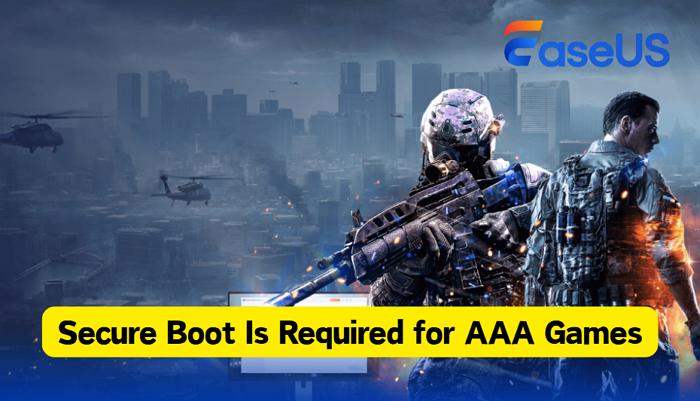Page Table of Contents
About the Author
Hot Topics
Updated on Jan 29, 2026
Sometimes. your USB flash drive doesn't show its full storage capacity. For example, a 128 GB USB drive only shows 32 GB storage in Windows. This issue isn't just limited to USBs. It can also affect hard drives, pen drives, memory cards, and Micro SD cards.
If your USB drive is also encountering this problem, don't worry. We'll guide you on how to fix a 128 GB USB that only shows 32 GB in Windows. EaseUS will give you easy, step-by-step instructions to reclaim that missing storage. Various easy and effective solutions are available. So, you don't need to compromise on low storage space.
How to Fix 128 GB USB Stick Only Showing 32 GB
We collected three solid fixes based on the potential causes of this error. Let's find the most suitable method based on your tech expertise and comfort level to fix a 128 GB USB stick that only shows 32 GB on your PC.
Way 1. Format USB to NTFS
Formatting your USB drive to NTFS can potentially fix the issue. You can do this using either EaseUS Partition Master or Disk Management. We'll explore both options with the proper instructional steps.
Option 1. Format Your USB via EaseUS Partition Master -Fastest🚀
The easiest way to fix a USB drive with less storage than its original size is to use EaseUS Partition Master Professional to format your USB drive to NTFS. This tool not only fixes capacity issues but also offers advanced features such as partition resizing and recovery options. That means it allows you to perform several actions in one place.
Step 1. Select the USB drive to format.
Connect the USB drive or pen drive to your computer. Launch EaseUS partition software, right-click the USB drive you intend to format and choose "Format".
Step 2. Set the drive letter and file system on USB.
Assign a new partition label if you want to change the drive letter of your USB, set the desired file system -NTFS/FAT32/EXT2/EXT3/EXT4/exFAT to your USB, then click "OK".
Step 3. Check "Yes" to confirm formatting USB.
Click "Yes" if you see the Warning window. If you have important data on it, back up the data in advance.
Step 4. Apply the changes.
Click the "Execute 1 Task(s)" button first, and then click "Apply" to format the USB drive.
Related Features of EaseUS Partition Master:
- Fix SSD not showing full capacity
- Resolve 256 GB USB only showing 32 GB
- Repair the hard drive shows the wrong capacity error
Try EaseUS Partition Master to format your USB drive and restore the USB flash drive to full capacity.
How to Restore USB Drive Back to Full Capacity [100% Working]
In this informative guide, you will learn effortless ways that can help you restore a USB flash drive back to full capacity.
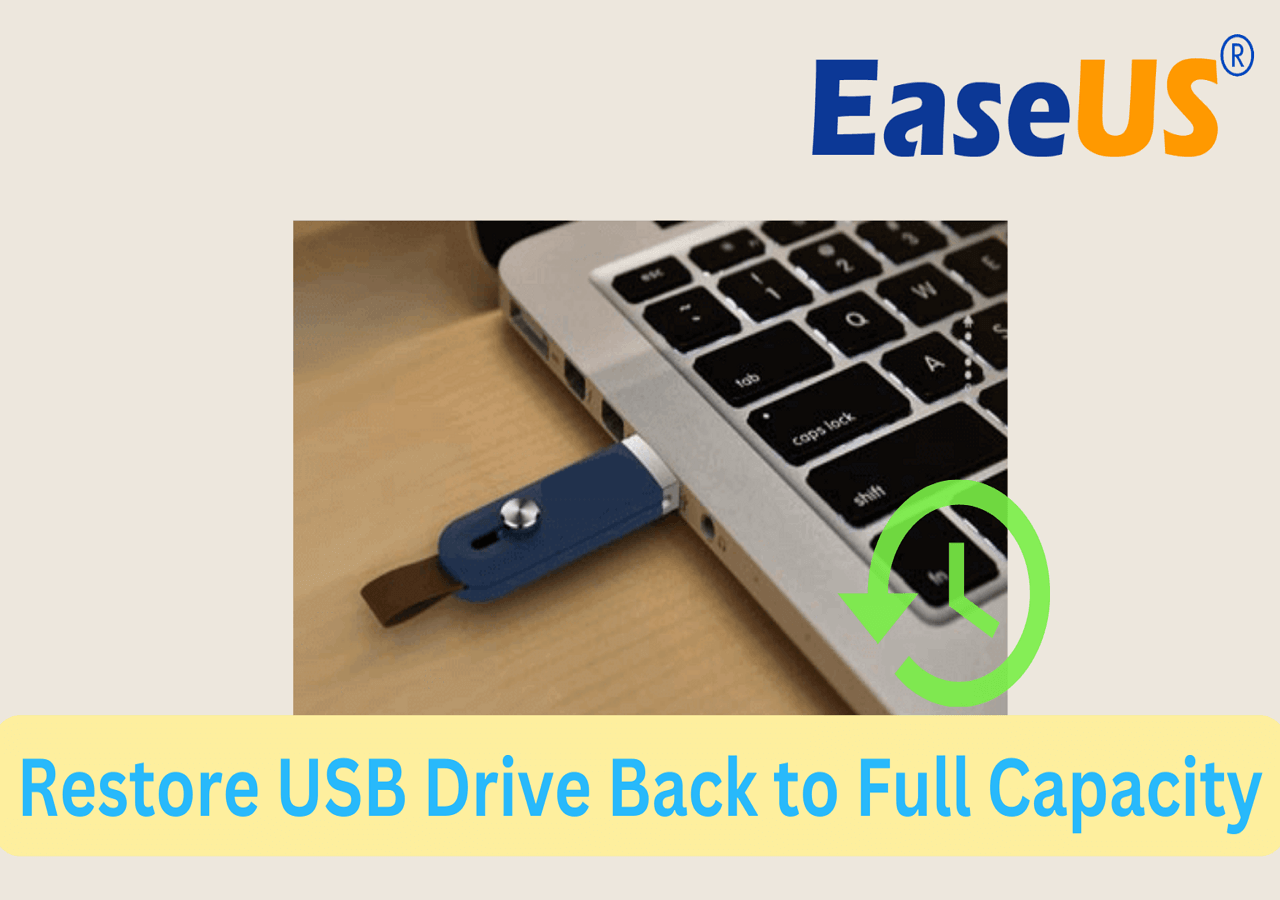
Option 2. Format Your USB via Disk Management
Disk Management is a tool for managing disks and partitions on Windows PCs. It can easily format your USB drive. Follow the steps:
Step 1. Connect your USB to the PC. Search and select Disk Management.
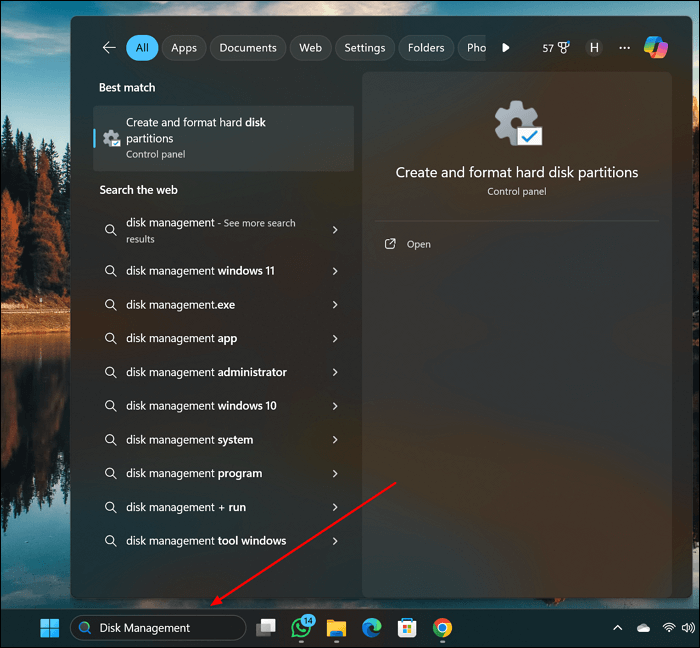
Step 2. Right-click on the USB drive and choose "Format".
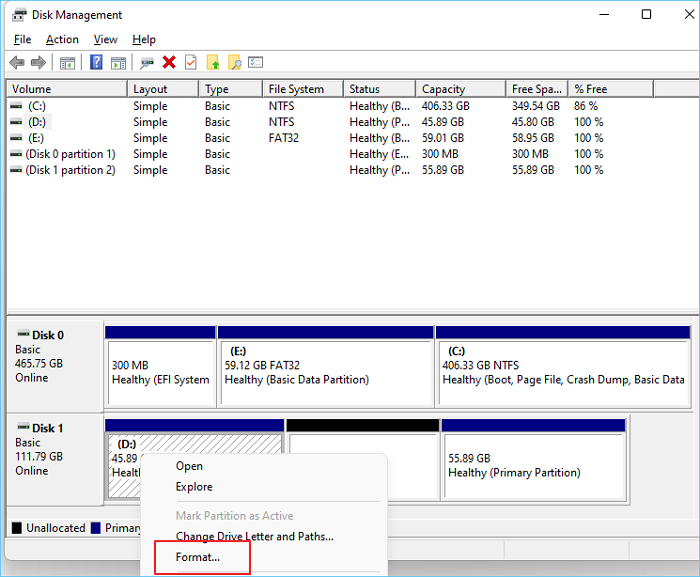
Step 3. Choose the File System "NTFS" checkbox "Perform a quick format" and click "OK."
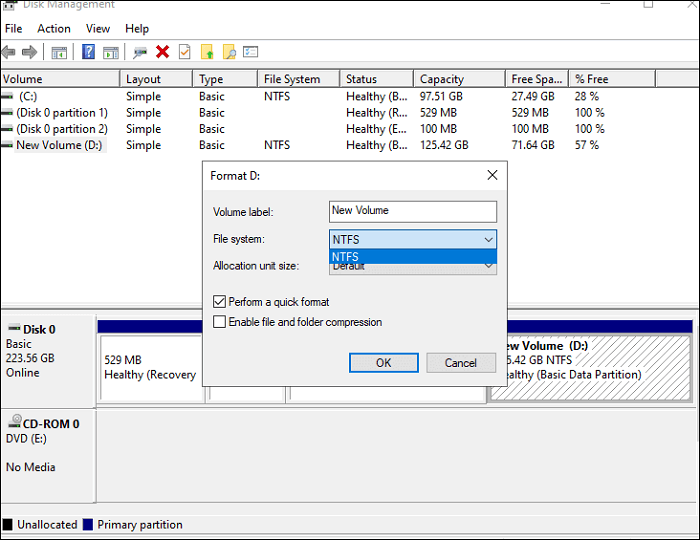
Way 2. Repair Corrupted USB
Sometimes, your USB drive can be corrupted and doesn't show the actual capacity. To fix this, you can use the Windows Command Prompt to repair the USB.
Follow the steps:
Step 1. Connect your USB drive to your computer.
Step 2. Open Command Prompt as an administrator by typing "cmd" in the search box and selecting "Run as administrator."
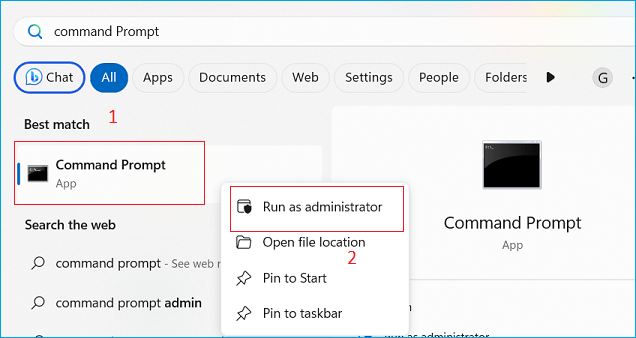
Step 3. Type chkdsk /X /f G: (replace G with your USB drive letter) and press Enter.
The system will scan and repair file system errors, and you'll see the message that Windows has made corrections to the file system.
Way 3. Extend the Volume on Disk Management
If your USB or hard drive has an unallocated partition, you can extend the volume on disk management to utilize the full storage capacity.
Follow the steps:
Step 1. Connect your USB to the PC. Press Win+X and select Disk Management.
Step 2. Right-click on your target partition and choose "Extend Volume".
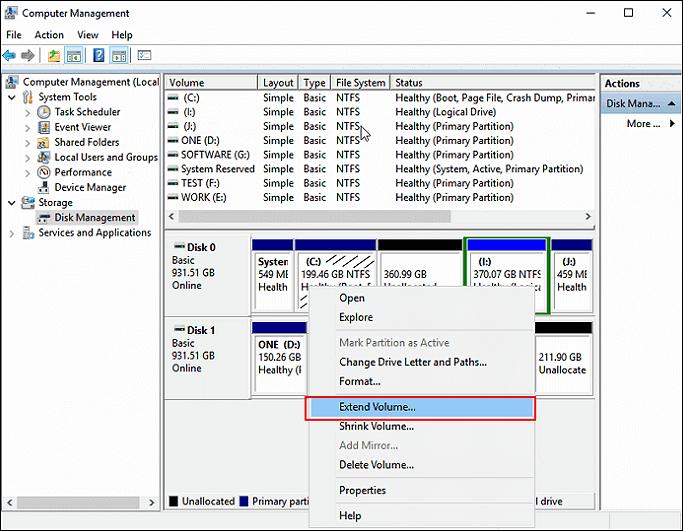
Step 3. Click "Next" and enter the size of the unallocated space.
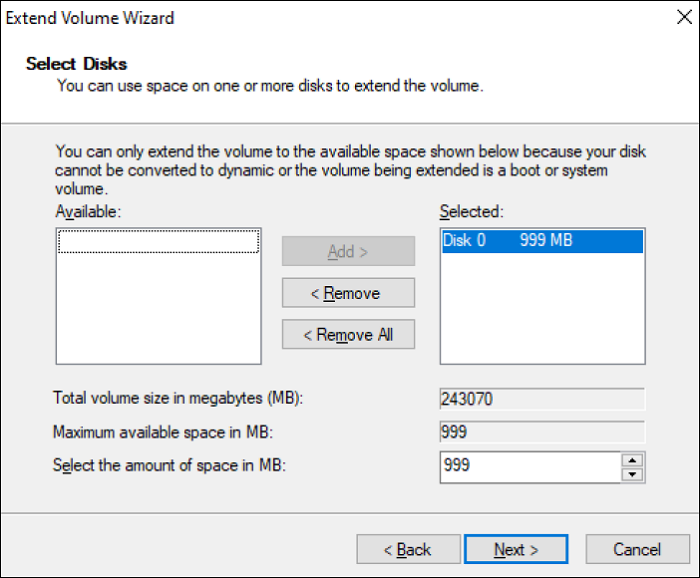
Step 4. Click "Next" and "Finish" to complete.
Why is Your 128GB USB Drive Only Showing 32GB?
When your USB flash drive or other removable disks aren't showing their full size, you might wonder why. Here are some common reasons for lost capacity:
- The USB was made bootable with a portable OS.
- The drive has multiple partitions, and Windows only recognizes the first.
- Hidden recovery partitions or unallocated spaces aren't visible.
- The USB is formatted with an incorrect file system, like FAT32.
- Virus damage or incompatibility with card readers or devices.
Share this tutorial with more people who don't know how to fix when their USB shows incorrect size:
Conclusion
The mystery of a USB showing a lower capacity than its original size can now be solved with the right methods. Following the steps outlined in this guide, you can restore your drive's full capacity through solutions like formatting to NTFS, repairing corrupted files, or extending the volume using Disk Management.
For an easy and efficient fix, we recommend using EaseUS Partition Master. It resolves capacity issues and provides advanced features such as partition resizing, disk cloning, and troubleshooting, making it a versatile tool for managing your storage devices.
FAQs About 128 GB USB Only Showing 32 GB
Check out the FAQs below if you have any queries about 128 GB USB only shows 32 GB.
1. Why is my USB drive not recognizing full capacity?
This often happens when the USB is formatted incorrectly or partitioned in a way that hides part of the storage. Formatting to a file system like FAT32 may limit capacity, while hidden partitions may prevent full recognition.
2. Why is my 256 GB external hard drive only showing 32GB?
The most common cause is that the drive was formatted in FAT32, which only supports partitions up to 32 GB. Hidden partitions or file system errors could also be responsible for the capacity limit.
3. How do I restore the flash drive to its full capacity?
To restore your flash drive's full capacity, you can try the following methods:
- Format your USB drive to NTFS using EaseUS Partition Master or Disk Management.
- If that doesn't work, repair corrupted USB drives using Command Prompt.
- Extend the volume of disk management to utilize the full storage capacity.
✅Extended Reading: How to Restore USB Drive Back to Full Capacity [100% Working]
How Can We Help You
About the Author
Updated by Tracy King
Tracy became a member of the EaseUS content team in 2013. Being a technical writer for over 10 years, she is enthusiastic about sharing tips to assist readers in resolving complex issues in disk management, file transfer, PC & Mac performance optimization, etc., like an expert.
Cici is the junior editor of the writing team of EaseUS. She accepted the systematic training on computers at EaseUS for over one year. Now, she wrote a lot of professional articles to help people resolve the issues of hard drive corruption, computer boot errors, and disk partition problems.
Product Reviews
-
I love that the changes you make with EaseUS Partition Master Free aren't immediately applied to the disks. It makes it way easier to play out what will happen after you've made all the changes. I also think the overall look and feel of EaseUS Partition Master Free makes whatever you're doing with your computer's partitions easy.
Read More -
Partition Master Free can Resize, Move, Merge, Migrate, and Copy disks or partitions; convert to local, change label, defragment, check and explore partition; and much more. A premium upgrade adds free tech support and the ability to resize dynamic volumes.
Read More -
It won't hot image your drives or align them, but since it's coupled with a partition manager, it allows you do perform many tasks at once, instead of just cloning drives. You can move partitions around, resize them, defragment, and more, along with the other tools you'd expect from a cloning tool.
Read More
Related Articles
-
How to Move EFI Partition to Beginning of Disk (Full Guide)
![author icon]() Oliver/2026/01/29
Oliver/2026/01/29 -
Top 9 Best Hard Drive Format Software Free Download 🏆
![author icon]() Tracy King/2026/01/29
Tracy King/2026/01/29 -
How to Change Boot Drive Windows 11 [Beginner's Guide]
![author icon]() Oliver/2026/01/29
Oliver/2026/01/29 -
Top 5 Best OS Migration Software/Tools Free Download 2026
![author icon]() Tracy King/2026/01/29
Tracy King/2026/01/29
Hot Topics
EaseUS Partition Master
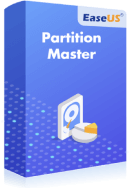
Version 20.0 is here - full exFAT support, easier disk partitioning, and PC performance optimization.

